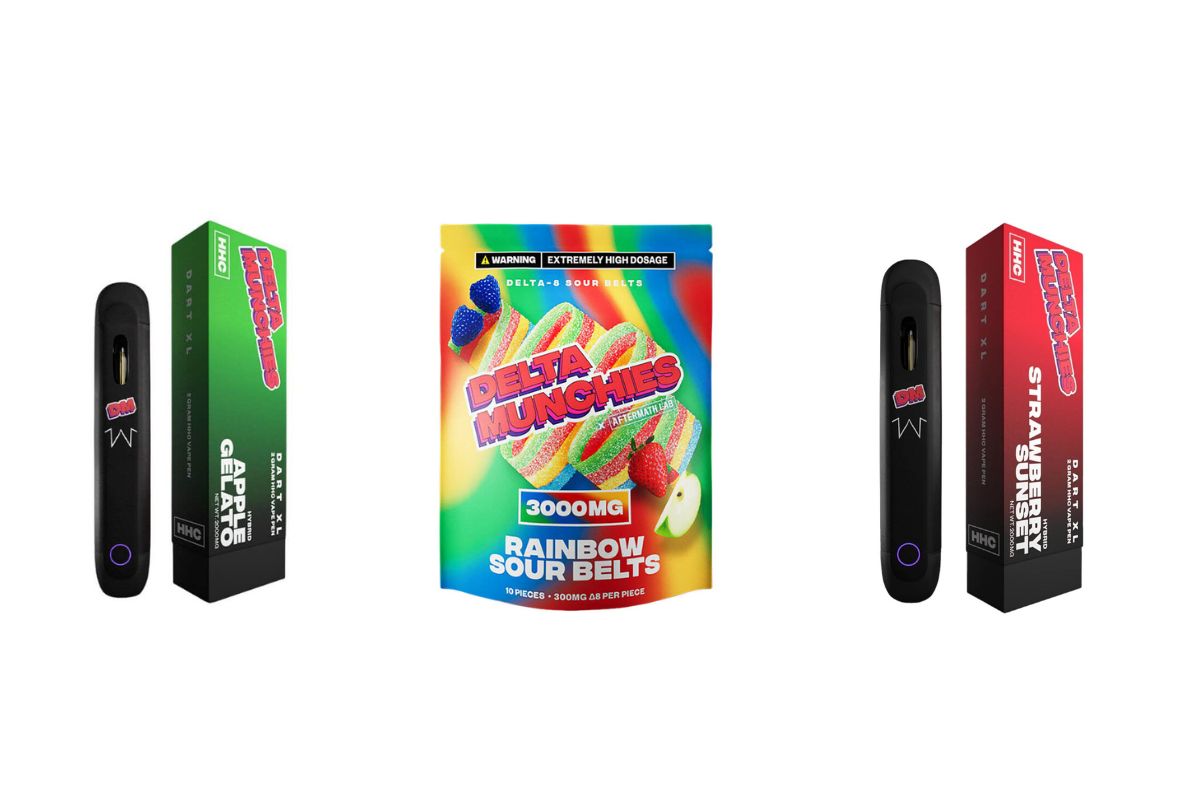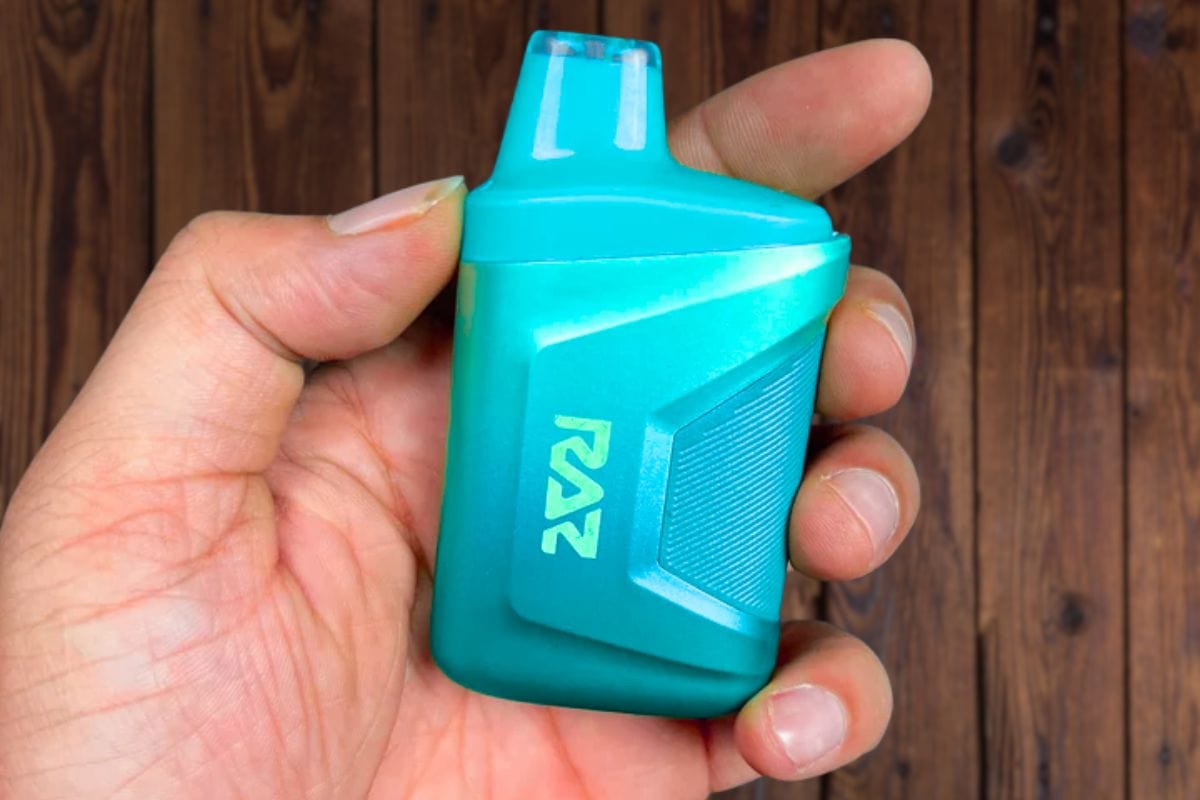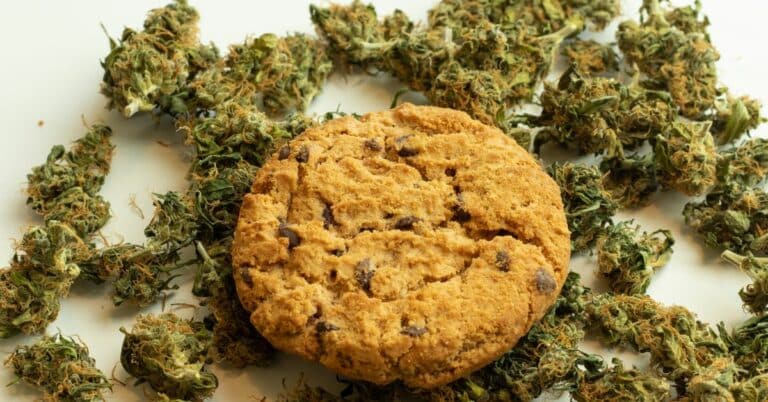Is Delta 8 Legal in Nevada: State Laws & Regulations Explained
Cracking the code on **Delta 8 legality** in Nevada is like peeling back the layers of a thrilling novel, where every page turned reveals a surprise. Imagine unearthing that **Delta 8-THC**, Delta 9-THC’s less famous relative from the cannabis family, actually hails from hemp. And here’s the kicker—hemp is totally legal nationwide, all because of the 2018 Farm Bill, which gives it the green light as long as the Delta 9-THC content doesn’t creep above 0.3%. For enthusiasts of the ever-evolving cannabis legislation, this journey into **Delta 8 in Nevada** feels like striking gold. You’re about to dive into a world filled with hidden gems and little-known facts that could flip the script on everything you thought you knew. Strap in; you’re on the verge of discovering a game-changing piece of wisdom.
In Nevada, cannabis is legal for both medical and recreational use, which might lead you to believe that all cannabinoids, including Delta 8, fall under the same umbrella of legality. However, the state’s stance on hemp-derived compounds like Delta 8 is subject to interpretation and enforcement practices that align with both federal guidelines and Nevada’s own regulations on controlled substances.
As you consider whether Delta 8 is legal in Nevada for your use, it’s essential to stay informed about the latest developments in state legislation and regulatory changes. The evolving nature of cannabis law creates a complex landscape that you need to navigate with updated information on hand, ensuring compliance with current legal standards surrounding THC and its various forms.
Historical Context of Cannabis Legislation
The legal landscape of cannabis, particularly in regards to delta-8 THC in Nevada, has been shaped by pivotal regulatory decisions. Key legal distinctions between hemp and marijuana, and changes brought forth by the 2018 Farm Bill, are central to understanding the current legislation.
2018 Farm Bill Overview
The 2018 Farm Bill marked a significant shift in federal cannabis policy. It removed hemp, defined as cannabis with a delta-9 tetrahydrocannabinol (THC) concentration of no more than 0.3 percent on a dry weight basis, from the Controlled Substances Act. This reclassification effectively legalized hemp and hemp-derived products, distinguishing them from marijuana, which remains a controlled substance at the federal level.
Hemp vs. Marijuana Legal Distinctions
Understanding the legal distinctions between hemp and marijuana is crucial:
- Hemp: Federally legal; contains no more than 0.3% delta-9 THC.
- Marijuana: Remains a federally controlled substance; typically has higher levels of THC.
On a state level, these distinctions impact the legal status of various cannabinoids derived from either hemp or marijuana. While hemp products can be legally produced, marketed, and sold in many states, the legality of marijuana and its derivatives, including various THC compounds, varies from state to state.
Current Legal Status of Delta 8 in Nevada
In Nevada, the legality of Delta 8 THC is defined by specific state laws and regulations which you should be aware of as a consumer or business.
Delta 8 THC Under Nevada Law
Delta 8 THC falls into a complex legal area in Nevada. Unlike Delta 9 THC (the primary psychoactive component in marijuana), which is clearly regulated, Delta 8 THC is not explicitly mentioned in Nevada’s Controlled Substances Act. However, Nevada aligns closely with federal regulations, especially the 2018 Farm Bill, which legalized hemp-derived cannabinoids. This could suggest that Delta 8 THC, if derived from legal hemp, might be permitted. Nevertheless, the state has not issued clear guidelines on Delta 8, leaving its legal status somewhat ambiguous.
State Regulations and Delta 8 Sales
When it comes to sales, the Nevada cannabis market is tightly regulated, and all cannabis products, including potential Delta 8 products, must be sold through licensed dispensaries. These dispensaries are monitored by the government to ensure compliance with state laws. Since the state has not expressly legalized Delta 8 THC, selling it outside of the regulated dispensary system could potentially lead to legal repercussions. As a consumer in Nevada, it is essential to purchase any cannabis-related products from a licensed dispensary to ensure that you are within the bounds of state law.
Delta 8 vs. Delta 9 THC Legal Treatment
In Nevada, the legal treatment of Delta 8 and Delta 9 THC revolves around their chemical structure and federal law alignment. Understanding these subtle nuances will inform you of their legal standing.
Chemical and Legal Differences
Delta 8 and Delta 9 THC are both cannabinoids with psychoactive properties, but they differ slightly in their chemical structure. Delta 9 THC is the well-known substance commonly associated with the psychoactive effects of marijuana, and under federal law, it is squarely listed as a controlled substance. Conversely, Delta 8 is a less potent isomer of Delta 9 and exists in a legal gray area. The law specifically defines controlled substances to include all THC isomers. However, it does not clearly speak to the salts of isomers, potentially leaving room for Delta 8’s lawful production and sale.
Regulatory Approach to THC Isomers
Federal law under the Controlled Substances Act classifies Delta 9 THC as a Schedule I substance, which means it has a high potential for abuse and no accepted medical use. Yet, the legal status of THC isomers like Delta 8 can vary by state. In Nevada, while state law aligns largely with federal regulation, the distinction regarding Delta 8 remains more ambiguous, since Delta 8 can be derived from hemp, which might be federally legal if it contains less than 0.3% Delta 9 THC. This intersection of law makes Delta 8’s legality tenuous, as it requires careful navigation of both state and federal regulations, understanding of chemical distinctions, and compliance with the evolving landscape of cannabinoid legality.
Federal and State-Level Legal Complexities
When navigating the legality of Delta 8 THC in Nevada, it’s essential to understand the layered complexity of federal guidelines as they intersect with specific state regulations.
Federal Laws Impacting Delta 8 Legality
Federal law, specifically the 2018 Farm Bill, legalized hemp and its derivatives that contain no more than 0.3% Delta-9-tetrahydrocannabinol (Delta-9 THC) on a dry weight basis. However, Delta 8 THC is not explicitly mentioned, leading to significant legal ambiguity. Since Delta 8 can be derived from hemp, it occupies a contentious space where its legality may depend on its source and the method of synthesis. Your understanding of this is critical as it influences how federal level and state-licensed dispensaries handle the compound.
Comparison with Other States’ Hemp Regulations
Comparatively, different states have unique responses to the federal law’s ambiguity. While some, like Colorado and Kentucky, have clear restrictions against Delta 8, others have embraced it within their hemp laws. You’ll find that the regulatory framework in Nevada, as outlined in the research paper “A Science-and Equity-Centered Framework to Reimagine Workplace Cannabis Testing,” is one of the more progressive ones, taking into account the nuances of cannabinoids beyond Delta-9 THC. However, it’s essential to keep abreast of the evolving state statutes since these legal interpretations can directly impact access and legality at state-licensed dispensaries in Nevada.
Market and Industry Insights
In Nevada, you’ll find that the legal status of Delta 8 THC shapes market dynamics and accessibility, influencing the breadth of products available to you.
Consumer Access and Product Availability
When you step into Nevada’s licensed dispensaries, your options for Delta 8 THC products reflect the state’s nuanced stance on hemp-derived products. You have the freedom to explore a variety of goods, from vapes to edibles, all sourced within a framework intended to ensure safety and reliability for consumers like yourself. Product availability is directly tied to the legality and regulatory oversight within the state, which aims to strike a balance between consumer protection and access.
The Impact of Legality on Industry Growth
Nevada’s legal position on Delta 8 THC has far-reaching implications for the industry’s development. The hemp market, including Delta 8 THC products, is burgeoning, thanks in part to the state’s legislative environment which fosters industry growth. For you, this means the popularity of these products is on the rise, translating to increased availability and a constant introduction of new options to the market. The balance of regulation and market freedom in Nevada serves as a benchmark for industry standards, prompting a steady expansion you can witness in the diversity and innovation of hemp-derived offerings.
Legal Implications for Producers and Consumers
When examining the legality of Delta-8 THC in Nevada, you as producers and consumers must navigate a complex legal framework. Compliance with state regulations directly impacts the legality of production, distribution, and consumption.
Production and Distribution Compliance
As a producer in Nevada, you are required to adhere to strict regulations regarding the production and distribution of Delta-8 THC products. The legal framework stipulates that your production processes must align with safety and quality standards. It is crucial to ensure that your labeling practices provide accurate information about THC content and include a legal disclaimer to educate consumers about the product. Distributing Delta-8 THC products without adhering to Nevada’s regulations could subject you to legal penalties. For in-depth guidance on these regulations, consult the paper on The hemp loophole: a need to clarify the legality of Delta-8-THC.
Consumer Legal Considerations
For you, the consumer, it is important to verify the legality of Delta-8 THC products before purchasing and consuming them. In Nevada, the purchase of these products may be legally permissible, but carrying and consuming them is subject to state laws governing the consumption of cannabis products. Always check the product’s labeling for compliance with Nevada’s regulations, and be wary of products that lack proper labeling or legal disclaimers. As a consumer, purchasing from reputable sources can provide some legal protection. Remember that this information is not legal advice, and consulting with a legal professional is advisable when in doubt.
Keep in mind that staying informed about any updates in the legal status of Delta-8 THC is important for both producers and consumers to avoid unintentional legal infringements.
Medical vs. Recreational Use of Delta 8
Delta 8 THC has gained traction in both medical marijuana and recreational cannabis sectors in Nevada. While there are distinctions in their use and regulation, your understanding of these can help you navigate the landscape of delta 8 THC legally and effectively.
Medical Cannabis and Delta 8 THC
When it comes to medical cannabis in Nevada, delta 8 THC is considered under the umbrella of legal treatment options. If you’re a patient with a qualifying condition, you have the accessibility to delta 8 THC products for therapeutic purposes. This cannabinoid is derived from Cannabis sativa plants and is valued for its potential to treat certain medical conditions without the same level of intoxication as delta 9 THC, the more potent compound commonly found in medical marijuana products.
Recreational Cannabis and Consumer Experience
On the recreational side, delta 8 THC is available to adults looking for a mild psychoactive experience. Nevada regulates delta 8 THC in a manner similar to recreational cannabis; thus, ensuring its products meet safety standards. While the intoxicating effects are reportedly less intense compared to delta 9 THC, it allows you to enjoy a relaxing experience. Your right to these products is protected under state law, provided you adhere to the established legal parameters for recreational use.
Frequently Asked Questions
In this section, you’ll find specific details about the nuances of Delta-8 THC’s legality in Nevada, encompassing both state and federal perspectives.
What are the legal distinctions between Delta-8 and Delta-9 THC in Nevada?
In Nevada, Delta-9 THC, the primary psychoactive compound in marijuana, is regulated under state marijuana laws, while Delta-8 is treated similarly to Delta-9 THC given its psychoactive properties.
Can you legally purchase Delta-8 products in Las Vegas?
Yes, you can legally purchase Delta-8 products in Las Vegas as it follows the state regulations that govern cannabis and its derivatives.
Are there any restrictions on the use of HHC compounds in Nevada?
Nevada law does not currently specify restrictions on hexahydrocannabinol (HHC), but it is advised to check the most recent state legislation for any updates regarding HHC compounds.
How does Nevada state law compare to federal regulations on Delta-8?
Nevada state law aligns with federal regulations regarding Delta-8 THC to some extent but exercises its own legal discretion in regulating the substance, similar to its approach to Delta-9 THC.
What penalties, if any, are imposed for possession of Delta-8 in Nevada?
There are no specific penalties for possession of Delta-8 in Nevada due to its legal status; however, unauthorized possession of cannabis-derived products still carries potential penalties under broader state cannabis laws.
Has there been any recent legislation in Nevada concerning Delta-8 THC?
For the latest on legislative actions in Nevada regarding Delta-8 THC, it’s recommended to review state government resources, as legislation can evolve to address the nuances of cannabis and its derivatives.







